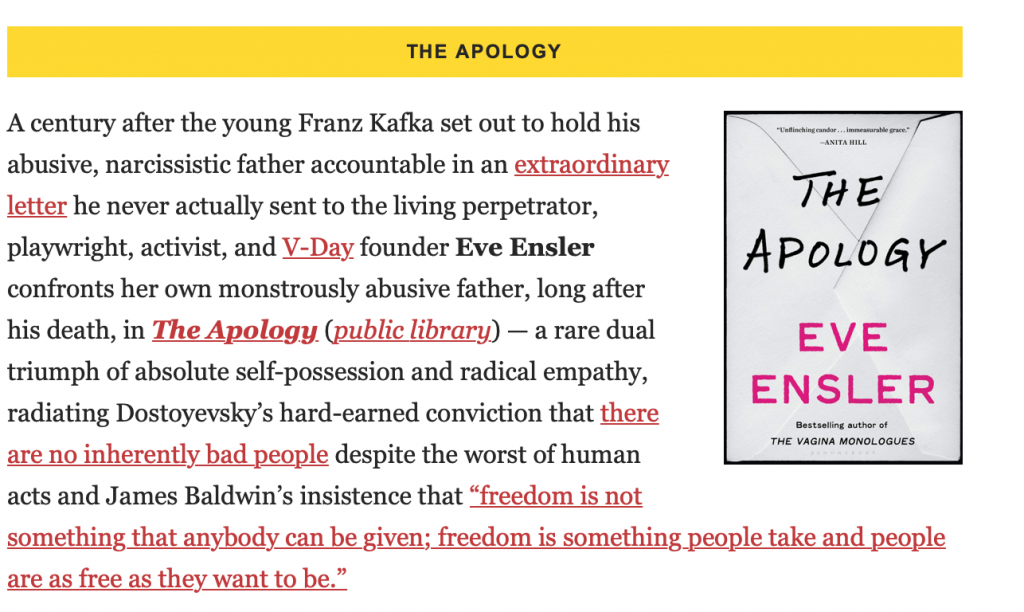
Brain Pickings chooses The Apology as one of the best books of 2019!
A century after the young Franz Kafka set out to hold his abusive, narcissistic father accountable in an extraordinary letter he never actually sent to the living perpetrator, playwright, activist, and V-Day founder Eve Ensler confronts her own monstrously abusive father, long after his death, in The Apology (public library) — a rare dual triumph of absolute self-possession and radical empathy, radiating Dostoyevsky’s hard-earned conviction that there are no inherently bad people despite the worst of human acts and James Baldwin’s insistence that “freedom is not something that anybody can be given; freedom is something people take and people are as free as they want to be.”
Ensler writes:
I am done waiting. My father is long dead. He will never say the words to me. He will not make the apology. So it must be imagined. For it is in our imagination that we can dream across boundaries, deepen the narrative, and design alternative outcomes.
This letter is an invocation, a calling up. I have tried to allow my father to speak to me as he would speak. Although I have written the words I needed my father to say to me, I had to make space for him to come through me.
There is so much about him, his history, that he never shared with me, so I have had to conjure much of that as well.
This letter is my attempt to endow my father with the will and the words to cross the border, and speak the language, of apology so that I can finally be free.
[…]
What is an apology? It is a humbling. It is an admission of wrongdoings and a surrender. It is an act of intimacy and connection which requires great self-knowledge and insight.
Channeling her father’s voice — the voice he never used to speak the words of apology that every survivor of violence wishes to hear from the perpetrator of that violence — she writes:
An apology must be thorough and can only be trusted in its veracity and dedication to details. I have done my best. I have followed your very strict guidelines: Recognize what I have done as a crime. Face how deeply my actions and violations have impacted and devastated you. See you as a human being. Attempt to experience or feel what it felt like inside you. Feel profound remorse and regret over my actions. And finally, take responsibility for my actions by doing extensive work to understand what made me do what I did.
What emerges from these intensely beautiful and harrowing pages is the reminder that redemption for our suffering is not something we get from others but something we claim for ourselves — that most difficult, most rewarding pinnacle of personal responsibility. (The act of writing the book prompted Ensler to reflect on her own creaturely responsibility in a different light, which she channeled in a stunning letter of apology to Mother Nature— the single most beautiful and important thing I read all year).
To read the full list click HERE.

